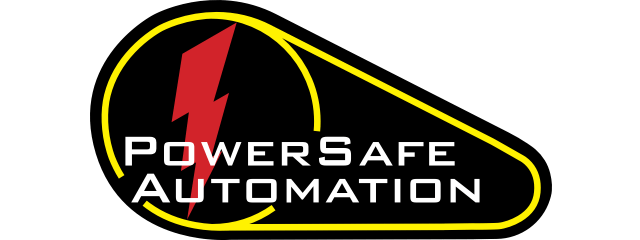Unlike off-the-shelf systems, custom mechanical automation is engineered to align precisely with your workflow, space constraints, and production goals.
Whether you're managing a high-mix, low-volume operation or a continuous, high-output line, the ability to engineer automation that fits your exact process can be the difference between lagging behind and leading your industry.
In this post, we’ll explore the Top 5 Benefits of Custom Mechanical Automation Systems—and how integrating them into your facility can drive measurable impact in productivity, safety, quality, and ROI.
Benefit #1: Increased Production Efficiency
One of the most immediate advantages of custom mechanical automation is the dramatic increase in throughput. These systems are designed around your existing processes, which eliminates unnecessary motions, manual adjustments, and bottlenecks. Custom machinery can be designed to handle multiple operations—cutting, assembling, labeling, or packaging—in one continuous motion, reducing the need for separate machines or multiple operators.
Key Efficiency Gains:
-
Reduced downtime with tailored cycle timing
-
Faster changeovers for mixed product lines
-
Streamlined material handling
-
Integrated sensors and feedback loops for precision
When machines are built for your product and process—not the other way around—you create a leaner, faster operation capable of scaling as demand grows.
Benefit #2: Enhanced Worker Safety and Ergonomics
Many of PowerSafe Automation’s customers initially seek custom mechanical solutions to reduce workplace injuries and OSHA citations. Custom automation eliminates repetitive tasks and isolates operators from hazardous zones. Tasks involving heavy lifting, awkward positioning, or dangerous pinch points can be re-engineered with automated systems that protect workers and reduce musculoskeletal strain.
Common Safety Enhancements:
-
Pneumatic lifting arms for part positioning
-
Automated clamping and cutting systems
-
Built-in guarding with interlocks
-
Ergonomic workstations with adjustable features
By investing in custom mechanical automation, manufacturers reduce injury claims, improve morale, and ensure compliance with ANSI and OSHA machine safety standards—all while improving output.
Benefit #3: Improved Product Quality and Consistency
Automation inherently improves repeatability and accuracy, two core drivers of product quality. In industries where tolerances are tight and traceability is critical—such as automotive, aerospace, or medical device manufacturing—custom systems can eliminate manual variability.
Quality Control Benefits:
-
Precision actuation using stepper motors or pneumatic cylinders
-
Integrated vision systems for inspection
-
Consistent torque, speed, and positioning
-
Fewer human errors and reduced scrap
When your mechanical automation is custom-built to meet your specs, you don’t have to compromise on performance. You can maintain product uniformity across shifts and batches while improving customer satisfaction and reducing rework costs.
Benefit #4: Flexibility for Unique Applications and Future Growth
Off-the-shelf solutions often force you to adapt your process to the machine. With custom mechanical automation, the solution adapts to you. This is particularly critical in environments with unique part geometries, space constraints, or frequent product changes.
Key Areas of Flexibility:
-
Modular design that supports product variation
-
Integratable with PLCs, sensors, or cobots
-
Scalable architecture for future expansion
-
Mobile systems for reconfigurable workcells
Custom machines also offer retrofit opportunities—upgrading existing processes with minimal downtime or structural change. This future-proofs your investment and gives you a platform for innovation without needing to start from scratch.
Benefit #5: Long-Term Cost Savings and ROI
Although custom automation involves a higher initial investment than manual labor or general-purpose equipment, the return on investment (ROI) is significantly greater. Custom systems reduce labor costs, improve uptime, and eliminate recurring safety and quality expenses.
Real-World ROI Drivers:
-
Labor reallocation and reduction
-
Scrap and rework minimization
-
Energy efficiency with targeted actuation
-
Reduced maintenance through built-to-last components
Over time, the system pays for itself—and then continues to drive profits. PowerSafe Automation has helped dozens of facilities reach breakeven on custom mechanical builds in less than 18 months, with some clients achieving over 25% annual cost savings from automation improvements alone.
Custom Mechanical Automation in Action: Case Study Snapshot
A Tier 1 automotive supplier partnered with PowerSafe Automation to automate the mechanical fastening process of an under-dash assembly. Their manual system required two operators, presented significant ergonomic risks, and introduced frequent torque variation errors.
Custom Solution Highlights:
-
Automated multi-spindle fastening with torque sensors
-
Rotating fixture to reduce strain and improve reach
-
Integrated vision check for correct component orientation
Results Achieved:
-
60% cycle time reduction
-
Zero safety incidents in 12 months
-
$150K annual labor savings
This level of outcome simply isn’t achievable with generic automation platforms.
Who Benefits Most from Custom Mechanical Automation?
Custom mechanical systems offer strong value for:
-
OEM manufacturers with unique product designs
-
Facilities with space constraints that require compact automation
-
High-mix, low-volume production lines
-
Operations with tight quality or safety standards
From small assembly stations to full machine integration, a custom approach makes sense when your business needs are complex—and your goals are ambitious.
The PowerSafe Automation Approach
At PowerSafe Automation, we don’t believe in cookie-cutter automation. Our team of mechanical designers, controls engineers, and safety integrators partner with your facility to:
-
Analyze your process flow
-
Identify safety and efficiency gaps
-
Design and fabricate custom mechanical assemblies
-
Integrate controls and safety features for compliance
-
Provide documentation, training, and long-term support
Our mechanical automation systems are designed to work smarter, safer, and longer. From pneumatic actuators to precision part fixtures, we tailor every aspect to your production reality.
Are You Ready to Automate with Confidence?
Custom mechanical automation isn’t just about replacing labor—it’s about engineering smarter, safer, and more profitable ways to manufacture. If your facility struggles with repetitive tasks, ergonomic risks, or inconsistent output, now is the time to explore custom solutions.
When you work with a turnkey provider like PowerSafe Automation, you gain a strategic partner who understands your business, your risks, and your growth objectives



